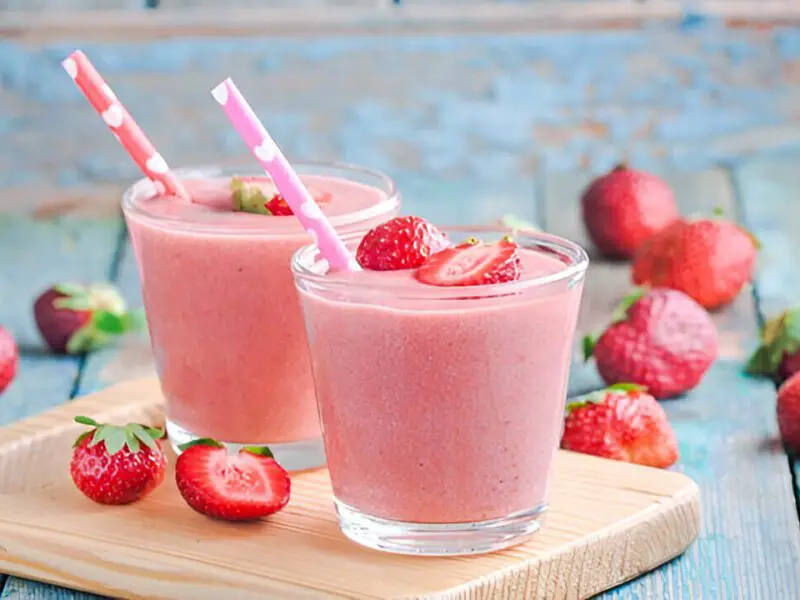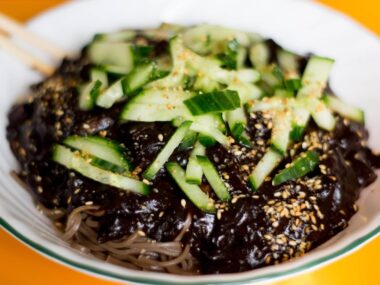Whether you’re lactose intolerant, following a vegan or plant-based lifestyle, or simply looking to mix up your morning smoothies, non-dairy milk options have come so far in providing rich, creamy texture without the cow’s milk. As a longtime smoothie enthusiast, I’ve spent plenty of hours tinkering with different milk substitutes in my blender until I land on crowd-pleasing combinations that taste incredible while also aligning with my values around health and sustainability.
In this article, I will share the best milk substitutes for smoothies based on factors like creaminess, flavor, and how well they blend together with your favorite fruits and veggies. My experimentation has focused on using only whole, unprocessed ingredients that allow the natural flavors to shine through. Through trial and error, some substitutes have risen to the top of my daily drinking rotation time and again.
Whether you’re a vegan newcomer looking to limit animal products or a longtime non-dairy advocate, I hope this guide provides inspiration to discover milk substitutes that taste amazing without compromising your wellness standards.
Best Milk Substitutes for Smoothies
1. Almond Milk
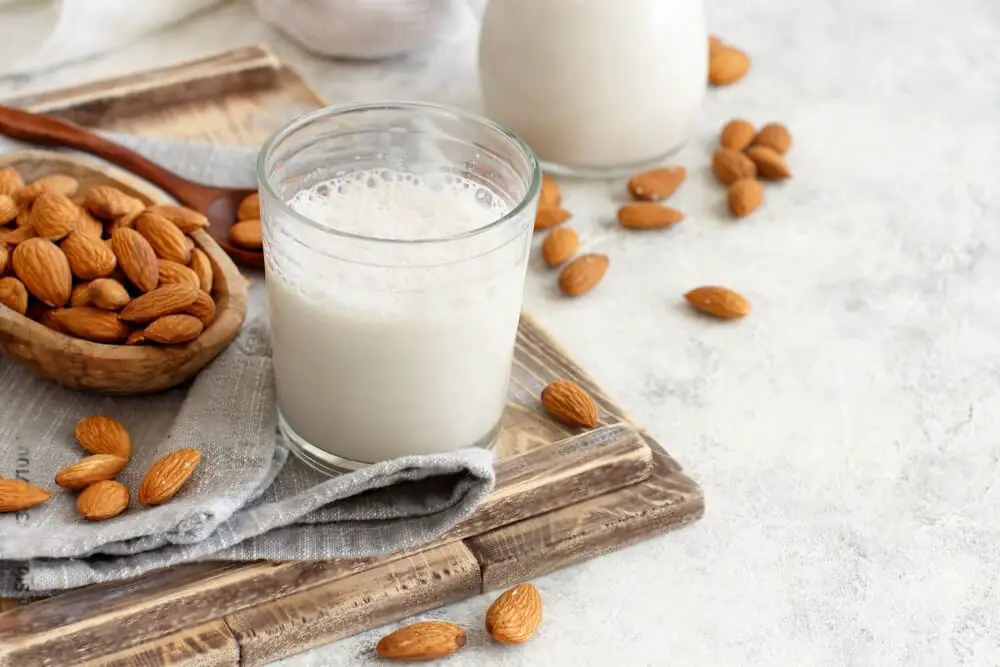
Of all the nut milks I’ve tried, almond milk is hands-down the most universally beloved in my smoothies. Made solely from soaked and blended almonds plus water, it produces a silky-smooth liquid without any strange bits or undesirable flavors. With its gentle sweetness that enhances without overwhelming, almond milk plays nicely with any and all produce ingredients.
Whether you go for an unsweetened or vanilla-flavored variety, almond milk adds just the right creaminess to round out your drink. I personally prefer the unsweetened vanilla as it provides a subtle richness without being cloyingly sweet. And while some flavored milks sneak in unwanted additives, going vanilla ensures you’re only getting the simple nutrition from almonds.
When selecting a brand, I always look for ones listing only almonds and water in the ingredients. Simplicity is key for letting the vibrant produce take center stage without any unwanted extras muddying the taste profile. One of my daily staples is blending almond milk with banana, berries and baby spinach—colors and flavors pop while creamy smoothness ties it all together for an easy grab and go breakfast.
Thanks to its mild and even taste, almond milk works with practically any mix of fruits or vegetables your blender can dream up. Whether keeping it basic or getting creative with additions like a teaspoon of peanut butter powder, I always know almond milk will deliciously deliver. Definitely try an unsweetened vanilla variety in your next smoothie if you haven’t yet; it may just become your new go-to as well!
2. Coconut Milk
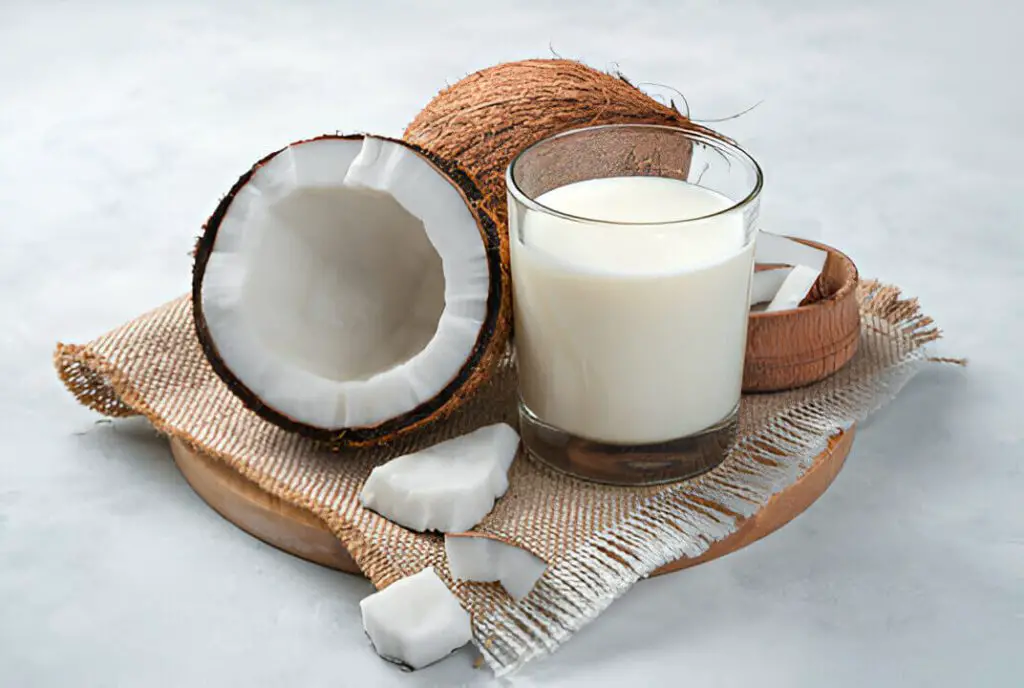
For an incredibly luscious and over-the-top velvety smoothie experience, nothing beats coconut milk in my book. With its thick, luxurious texture, just a half cup transforms any blend into a taste of paradise. That said, coconut milk’s distinct taste means it’s not always suitable depending on your personal preferences.
While I opt for full-fat cans of coconut milk rather than the lighter beverages, it’s important to note this choice comes packed with saturated fat. Too much in one smoothie could tip the nutritional scale in an less optimal direction. So when using coconut milk, I aim to integrate it judiciously – usually around ½ cup max per 16-20 ounce blend. This provides lushness without going overboard on fat or flavor domination.
With its lively tropical essence, coconut milk really sings in recipes featuring pineapple, mango, banana and of course shredded coconut. I like to blend it with orange juice too for a refreshingly luxurious Creamsicle vibe. Used sparingly, those pronounced coconut tones enhance without overpowering the other star players. Adjust to your own tastes of course – some love coconut so much they’d bathe in it!
3. Oat Milk
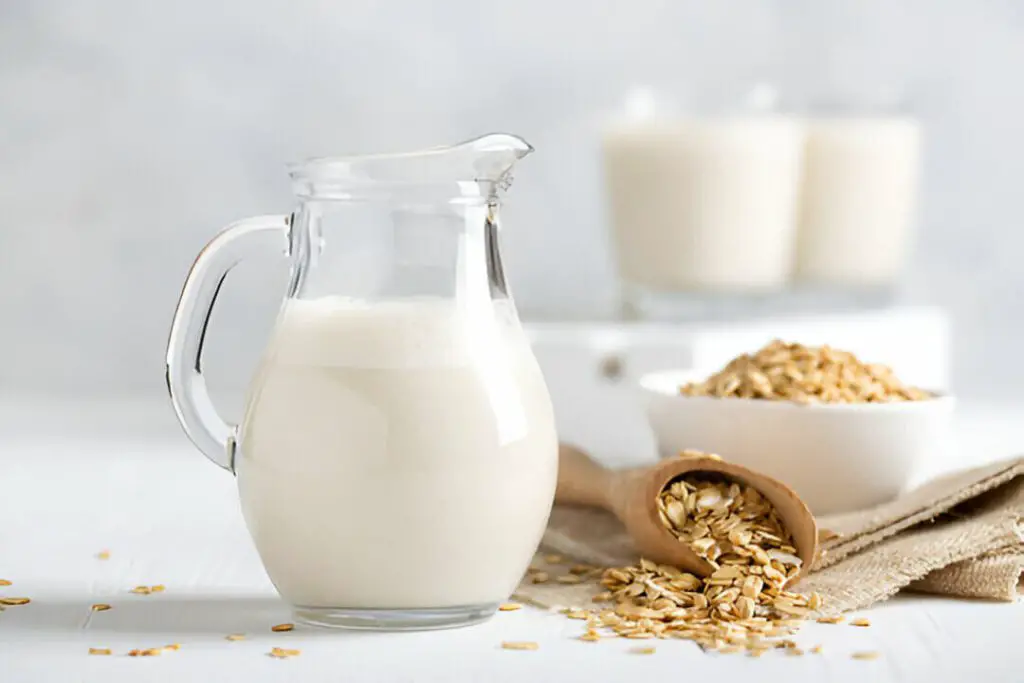
Lately, oat milk has become one of my absolute favorite dairy alternatives for smoothies thanks to its pleasantly light and creamy texture. Made by soaking and blending whole oats, it provides protein and fiber without any strange particulate remnants like some other plant milks can leave behind.
I find myself reaching for the plain variety most often to allow the natural brown sugar notes to subtly enhance my concoctions. But oat milk also comes in satisfying flavors like vanilla, chocolate and even occasionally seasonal options that I enjoy experimenting with in seasonal blends. Whether sweetened or not, the thickness of oat milk means a smaller amount adds sufficient lushness without over-diluting.
This density and creaminess makes oat milk a dream to blend. With my favorite produce like banana, berries and greens, it blends into luscious richness without requiring much elbow grease. Cleanup is also a breeze as left behind bits rarely stick to the sides of my blender like some nut milks prone can.
Plus, I appreciate the modest nutritional boost oat milk provides compared to other non-dairy options. It contains some protein and fiber to keep me satiated without any major digestive disturbances some people struggle with from cow’s milk or nut milks. All in all, oat milk has earned a permanent home in my creamiest smoothie formulas. If you haven’t tried it yet in your blender, I definitely recommend it!
4. Soy Milk
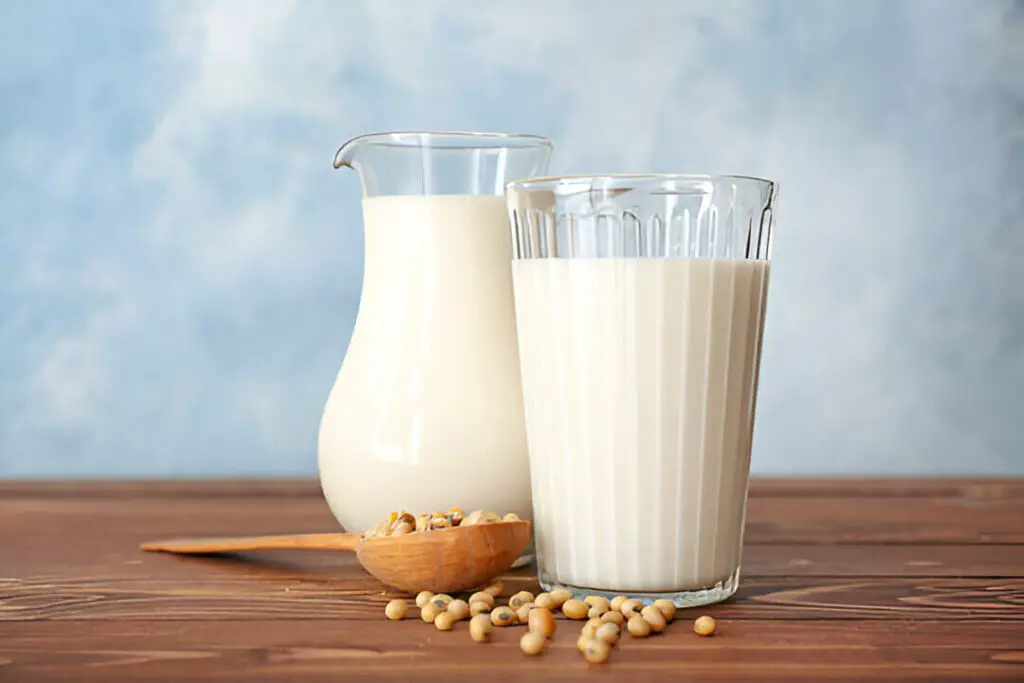
No list of top smoothie milks substitutes would be complete without mentioning soy milk, in my opinion. Made from whole soy beans, it provides protein and offers a very mild flavor that meshes beautifully in creamy blends.
While some dismiss soy milk out of hand due to misguided controversies, the reality is it can be a superb plant-based option when consumed in moderation and sourced responsibly from organic producers. I look for brands showcasing non-GMO verified soybeans that weren’t grown with harsh herbicides or synthetic hormones. After all, moderation and balance are what wellness is truly about.
Much like almond milk, soy milk takes on flavors wonderfully without asserting its own very strongly. This makes it superb for letting fruity or veggie elements shine as the stars. At the same time, the subtle flavors enhance each other for a perfectly balanced end result. Soy milk is also notable for having a smooth texture that blends effortlessly without sticking or residual flecks.
When selecting soy milk for your next tropical pineapple-kale bonanza or citrus berry blend, go for an unsweetened plain variety. This allows flavors to harmonize deliciously while keeping sugars lower for a more nutrient-dense experience. Whether exploring soy milk or continuing your almond milk love affair, you really can’t go wrong!
Dairy-Free Options Beyond the Standards
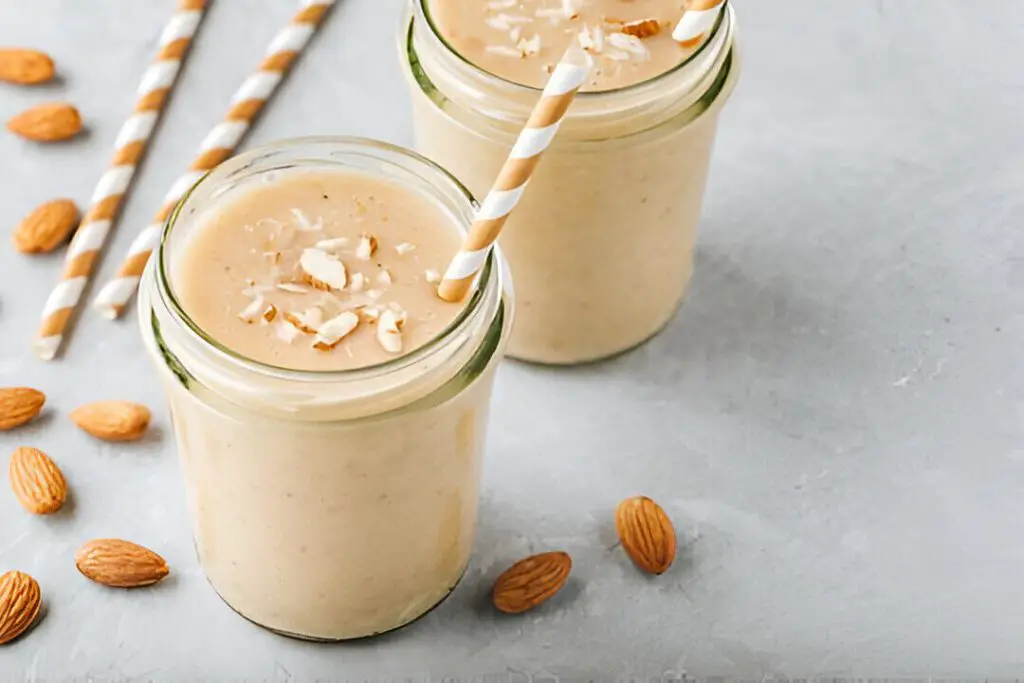
While almond, oat, coconut and soy milks deserve plenty of love for being smoothie essentials, it’s also worthwhile branching out to explore some lesser known non-dairy wonders. Nut milks crafted from cashews, hazelnuts and Brazil nuts each bring nuanced flavor profiles to experiment with.
Similarly, Rice, hemp, flax and pumpkin seed milks can introduce delightful nutrition along with tasting notes worth appreciating. Just don’t overlook classic nut pods we should all be familiar with by now – coconut creamer works magic in tropical delight blends.
When seeking new plant milks, read labels closely to understand nutritional values and ensure minimal ingredients. Then do small batch test runs blending a few ounces at first until gauging textures and tastes. No need wasting precious produce by going all in on an unknown quantity!
Experimenting Further
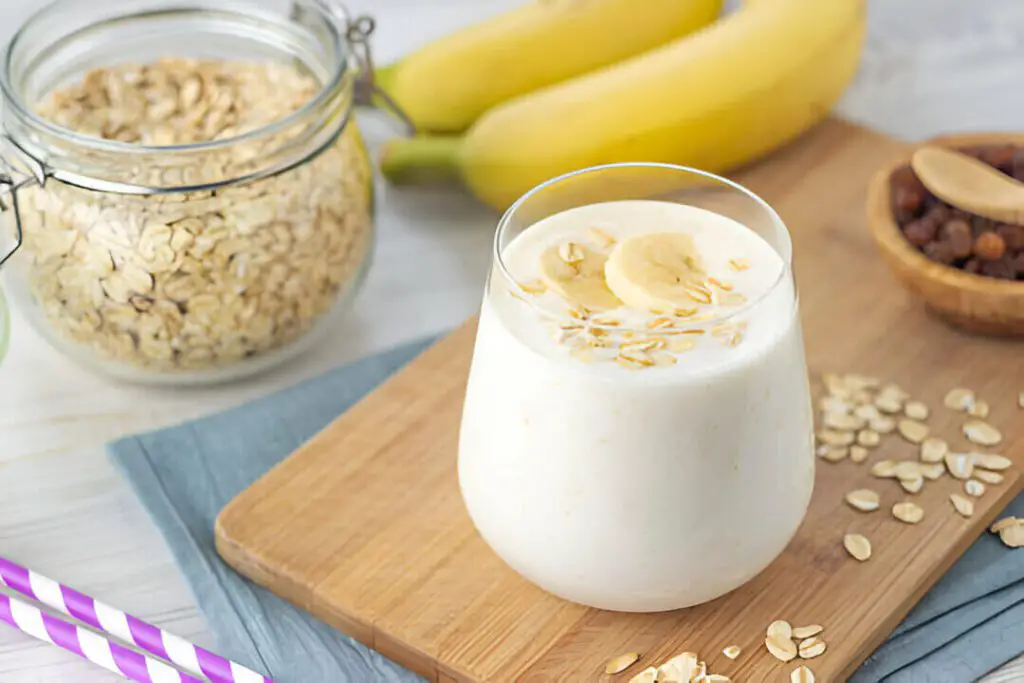
While I’ve shared some tried and true combos here, the fun is really in continual experimentation to discover endlessly inspiring smoothie variations. Branching out helps avoid boredom while supporting artisans crafting sustainable alternatives. Plus unique milks inspire innovative smoothie fusions like ginger snap spice blends using dandelion milk.
Consider finding hazelnut, Brazil nut or macadamia milks to support artisans crafting sustainable options. Or splash out on innovative takes like horchata rice, dandelion or oat drink beverages. I once blended hibiscus rice milk with strawberries and was thrilled by the floral pink outcome!
You can even craft your own homemade nut milks easily by soaking and blending dry ingredients. I like keeping a jar of macadamia creamer in my fridge for tossing into creations on a whim. No store-bought carton required. Seeing what recipes lend themselves to DIY is a creative challenge.
Nowadays so many markets stock seasonally rotating milks as well. I recently blended a pumpkin spice inspired smoothie using fallal-flavored oat beverage perfect for the occasion.
Tips for Using Non-Dairy Milks in Smoothies
Now that we’ve explored some best milk substitutes for smoothies, here are a few of my tried-and-true tips for working with plant-based milks:
- Start with less milk than you think is needed. Many are thinner than cow’s milk so go slowly til consistency is just right.
- Chill milk beforehand or use ice to keep smoothies frosty-cold longer. Room temp ingredients blend faster too.
- Thicker milks like coconut, oat or cashew provide more creaminess using just ½ cup compared to 1 cup of thinner varieties.
- Add a spoonful of nut or seed butter for extra luxurious mouthfeel without using excessive sweetened nut pods.
- Mix milks for creative twists, like almond with banana or oat milk in greens blends.
- Pulse thick fruits separately before adding milk to cut down blending time.
- For nutritious boosts blend a tablespoon of protein powder with your milk of choice.
- Tailor ingredients to your lifestyle needs – low sugar, high protein or easy digestion recipes are customizable.
- Enjoy smoothies immediately or store in sealed containers no more than 24 hours, giving a good shake before drinking.
With some practice your smoothie skills will evolve. Mostly just listen to your taste buds and enjoy the journey of learning what wellness means uniquely for you.
FAQs
How long will my smoothies last in the fridge?
For optimal freshness and nutrient retention, try to finish homemade smoothies within 24 hours. They will usually last 3-4 days sealed in an airtight container with a good shake before drinking. Make single-serve sizes if possible.
Can I freeze smoothies for later?
Smoothies do generally freeze well! Leave a little extra space at the top of your container as liquids expand when frozen. Thaw in the fridge overnight and shake or blend briefly before enjoying.
What about protein levels in these milk substitutes?
Protein content can vary, with soy, nut and some seed milks near cow’s milk levels per cup (8g). Oat milk provides about 1g and coconut is lower. Blending protein powders or Greek yogurt is a great way to supplement non-dairy smoothies.
Can non-dairy milks cause digestive issues?
For some people, the fiber or sugars in some plant milks like cashews can cause stomachaches if overconsumed. Starting with smaller amounts and gradually increasing is best to see how your body handles different options. Chia, hemp and oat are among the easier to digest.
Can I use substitutions other than milk?
Absolutely! You can explore using ingredients like coconut water, juice, nut butter, yogurt or silken tofu to achieve different textures. Experimentation is part of the fun.
What if I don’t have access to speciality milks?
No need to fret! Staples like almond, oat and coconut are widely available and very versatile. Get creative combining what your local stores offer.
How do I pick the right milk for my needs?
Consider factors like flavor preferences, dietary restrictions, nutritional priorities and what’s easily obtainable. Trying one or two new options each week exposes you to variety over time.
Any tips for picky kids’ smoothies?
Start simply with one or two favorite fruit and a mild milk. Frozen banana is extra creamy. Hide vegetables gradually and keep it fun with festive straws! Experimenting builds adventurous eaters.
How do you keep smoothies low sugar?
Opt for whole fruits versus juice. Limit sweeteners and choose lower glycemic impact milks like unsweetened nut or seeds. Emphasize veggies/greens and use fruit to enhancement versus being the star. Protein and fiber help curb cravings too!
